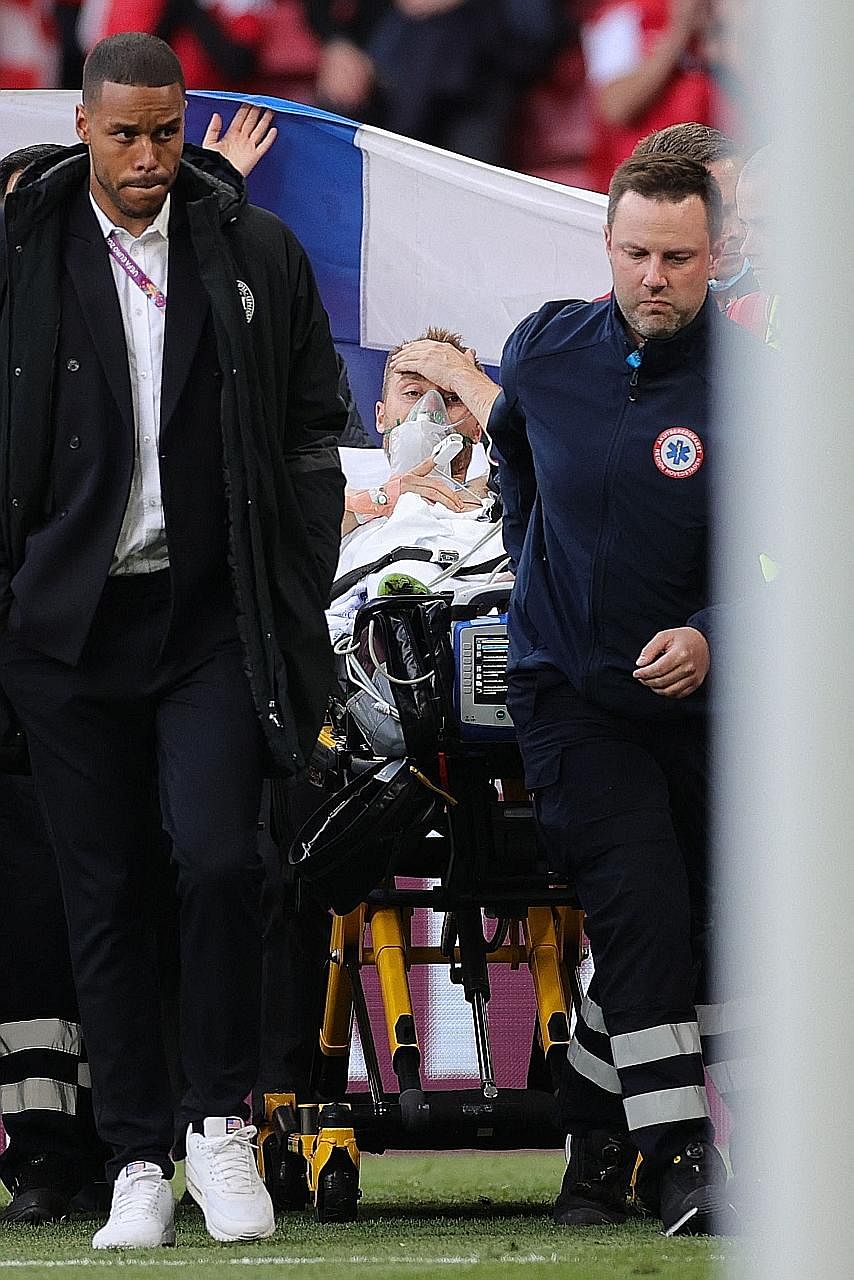During a recreational football session in 2008, Dr Cormac O'Muircheartaigh witnessed his friend collapse after suffering a cardiac arrest. He and several surgeons who happened to be at the Co-curricular Activities Branch in Evans Road tried to resuscitate his friend. But the man did not survive.
This all came back to Dr O'Muircheartaigh, a sports medicine specialist and medical director of Sports Medicine Lab, as he watched Danish midfielder Christian Eriksen collapse during his team's Euro 2020 opener against Finland last Saturday.
The 29-year-old player, who is in stable condition now, received life-saving cardiac massage treatment on the pitch and was able to speak before he was taken to hospital.
Watching the incident unfold on TV reminded Dr O'Muircheartaigh of how timely medical intervention is key to saving lives.
He said: "The pitchside medical team and the Danish medical team deserve a lot of credit for how well they reacted. The minute he went down, you could see from the players and officials that something serious had happened.
"You can see that when the referee turned and blew his whistle, the medical team, doctor and physio were already on the pitch. The sooner you can get on and make an intervention, the better."
Denmark's team doctor confirmed on Saturday that Eriksen had suffered a cardiac arrest, but said the reason remained unclear.
According to Dr Sanjay Sharma of St George's University of London, the player's cardiologist when he was with Premier League side Tottenham, the midfielder had no history of heart concerns and had returned normal tests from 2013 to 2019.
Dr O'Muircheartaigh said that the most common cause of sudden cardiac arrest is an arrhythmia or irregular heartbeat. But if one gets the defibrillator on and does the appropriate defibrillation within two minutes, there is a 90 per cent chance of converting that irregular heartbeat or arrhythmia back to a normal rhythm, he said.
He noted that as a professional sportsman, Eriksen would have undergone regular screenings and tests before Euro 2020, for both his clubs and national team, and that in most cases, there are no warning signs of an impending cardiac incident.
But certain symptoms of cardiac illness or injuries to look out for include unexplained chest pains and breathlessness.

Dr O'Muircheartaigh also pointed out that this incident took place at a Uefa tournament with personnel who were well-equipped to deal with such situations present.
However, most cardiac arrests happen at a recreational level, which is why the former Singapore Sport Institute medical director believes it is crucial for the public to have basic first aid and cardiopulmonary resuscitation (CPR) training.
He said: "It's far more likely to happen to people playing recreational football with friends and if they're trained, (there is a) much better chance of survival, so getting the general public to be aware of basic CPR and having the confidence in using the defibrillator and pressing the button that gives the appropriate shock is by far the most important thing."
When asked what weekend warriors could do to reduce the chances of suffering a cardiac incident while exercising, Dr O'Muircheartaigh said the minimum would be a risk assessment such as a questionnaire like the Physical Activity Readiness Questionnaire (PAR-Q).
"If someone is concerned, then the minimum screening would be a consultation with an appropriate medical personnel such as a cardiologist, sports physician or general practitioner with a special interest in sport," he added.
They will perform a medical history, clinical examination, basic blood tests and a resting electrocardiogram. "Based on the history, examination and first-line screening tests, there may be a specific indication for an echocardiogram, exercise stress test or heart monitor (for 24 hours)," he explained.

